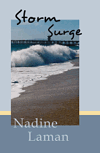A reminder here, you can hire a line editor - proof reader (I know a good one if anyone needs one). But there is more to being a good fiction writer than grammar and punctuation. A perfect, error free ms isn't necessarily a good read. There are elements of the craft that are more important than the occasional subject/verb out of agreement.
A fiction writer needs to practice the skills of the craft: Character Development (not a two paragraph mini bio that stops the story dead - boring), pacing (sentence structure and context that matches the action of the words), scene (the development of vignettes that drive the story forward and develop the characters, create conflict and resolution), setting (only stand up comedians work on an empty stage - put people in the city scenes and animals in the rural scenes, and a habitat to match the setting), tone (the flavor of the story, the aftertaste), voice (who tells the story, the 'personality' of the storyteller - not the writer), literary devices (personification, foreshadowing, dialogue, backstory, and more), plots, plot arcs, and subplots, tense, point of view (POV) - see the links below for more info.
Notice I did not mention once that to be a good fiction writer you need to know the 48 prepositions or the 8 parts of speech (The basic eight parts of speech in the English language consist of the verb, noun, pronoun, adjective, adverb, preposition, conjunction and interjection.)
Writing fictioin is like building a house. You need to have electrical, plumbing, structure, design, a roof - the paint and floor covering are last. Novice writers try to paint before the walls are up --they edit prematurely.
I've put together some books on writing on the third page of my amazon store http://nadinelamanbooks.com/astore.html If you buy only one book, buy the script writing book. Read the parts about camera angle and the parts that teach you to write a motion picture in your reader's mind. There are several other books I like, I'll ask Joyce - my web designer - to add them for me.
If you are editing while you write or right after the first draft is finished, it will show, it will not be your best possible work - I read far more mss than I read published books. I can tell at what stage the editing was done and your eventual readers will too, even if they don't know what is lacking. While editing is important, it is far less important than good writing...and that comes with rewrites. Basically, editing for grammar and punctuation is the last step of polishing an ms.
Writing a good story is the first step, that is why I say the elements of producing fiction are these in this order:
First draft - written from beginning to end, straight through, no going back at all - ever.
Rewrites - strengthening the story with literary elements of good story writing, done correctly, this step will be repeated several times - straight through, beginning to end.
Edit - cleaning up grammar and punctuation. And finally, line editing or proof reading.
From there you can query agents, shop your ms, or move into one of the many ways to publish your own book.
The saying goes: "Writers write" not "Writers edit." Don't get off track on what it is you wanted to be when you started writing, you wanted to be a WRITER.
Literary devices:
http://www.ask.com/questions-about/Literary-Devices
http://olc.spsd.sk.ca/de/resources/litdevices/index.html
http://en.wikipedia.org/wiki/Literary_technique
http://www.uncp.edu/home/canada/work/allam/general/glossary.htm
ms = manuscript
Goodness, google 'literary devices' learn the craft, it is far MORE than editing.
Tuesday, September 8, 2009
Subscribe to:
Post Comments (Atom)

 When Paul Fenton stops for breakfast in a small town, he gets more than he bargained for in the process.
When Paul Fenton stops for breakfast in a small town, he gets more than he bargained for in the process.
 When two-hundred-year-old human remains are discovered on one of Neptune's moons, Earth's history falls into question.
When two-hundred-year-old human remains are discovered on one of Neptune's moons, Earth's history falls into question.
 Emily's husband persuades her to try thalidomide to ease her symptoms as she is unaware of the devastating effects.
Emily's husband persuades her to try thalidomide to ease her symptoms as she is unaware of the devastating effects.
 Who is the women's shelter bomber? Melissa Ryan suspects that her husband knows.
Who is the women's shelter bomber? Melissa Ryan suspects that her husband knows.
 Further developments with the Wilder family.
Further developments with the Wilder family.
 A hidden past shakes the O'Donovan family to its core
A hidden past shakes the O'Donovan family to its core
 A swirl of emotion and choice, set in Cape Town, South Africa
A swirl of emotion and choice, set in Cape Town, South Africa
 Love is a constant, but it comes at a price.
Love is a constant, but it comes at a price.
 When the road ahead is unclear, sometimes you have to rely on trust.
When the road ahead is unclear, sometimes you have to rely on trust.
 The struggle between good and evil is ages old. It gets all the more complicated when the good guys aren't all good and the bad guys have redeeming qualities.
The struggle between good and evil is ages old. It gets all the more complicated when the good guys aren't all good and the bad guys have redeeming qualities.
 Story of a land mothering two races of people – the light-skinned and the dark-skinned.
Story of a land mothering two races of people – the light-skinned and the dark-skinned.
 A gifted Ukrainian ballerina comes into possession of a mysteriously coded address book.
A gifted Ukrainian ballerina comes into possession of a mysteriously coded address book.
 Six passengers' lives change for better or worse after they arrive in Honiton.
Six passengers' lives change for better or worse after they arrive in Honiton.
 Resilience and love in a harsh and unforgiving age
Resilience and love in a harsh and unforgiving age
 Kathryn's Beach
Kathryn's Beach High Tide
High Tide Storm Surge
Storm Surge
Your blog is always full of wonderful insights, Nadine. You're a real treasure! Thank you for posting on my blog. I've left you a reply there. Hope all is magical in Arizona! Much love ~x
ReplyDeleteThat's a very useful post, and for writers like me who run by 'instinct', some really good reminders in there.
ReplyDeleteI read a book the other day and - as I was reading it for the second time - couldn't help but notice the errors (a few spelling/typos, and one story inconsistency), but that was on second reading. I notice errors in all sorts of things except - and this is the rub - my own work!
Using an editor and a proof reader is a good idea - as long as you don't let them correct the very heart and soul out of your work.
Carrie
Great post. I'm glad I found you in Carolyn Howard-Johnson's newsletter!
ReplyDeleteAs an editor and author, I really appreciate what you said about not taking the heart and soul out of an author's work. I just edited a 104,000-word manuscript down to 87,000 words. I promise I did not mess with the author's voice or change her story. There was that much "fluff" and repetition. She had no idea how much her manuscript could be improved until we were underway. Now, she's hired me to write her book proposal, query letter, and to edit her next three books! Yay! We all win!
Ehem...I imagine Nadine now shaking her finger at me...Thank you for this post, Nadine!
ReplyDeleteCarol Ann, your photos are magical. I can't wait to read your book.
ReplyDeleteCarrie, reading your ms aloud to someone who is following along with a paper copy (reuse the back) will help you catch loads of things, and for dialogue, this trick will make it more realistic.
Ivy, I was actually thinking of someone I tried to team write with once. But if the shoe fits.
Yvonne, your name is familiar. I'll make a second comment about editor vs ghost writer.
My comments turned into a post for tomorrow. See ya then, I'm off to the mountains for a week. Over and out for today.
ReplyDelete